Search Results
Showing results 41 to 60 of 273

Evaporation
Source Institutions
This three-part activity consists of an activity that groups of learners develop themselves, a given procedure, and an optional demonstration.

As Straight as a Pole
Source Institutions
In this engineering activity (page 3 of PDF), young learners investigate how a pole can be made stable by “planting” its base in the ground or adding supports to the base.
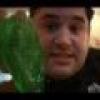
Guar Gum Slime
Source Institutions
In this activity, learners create a gelatinous slime using guar gum powder and borax. Educators can use this simple activity to introduce learners to colloids.

Sensory Hi-Lo Hunt
Source Institutions
In this outdoor activity, learners use only their senses to to find the extremes of several environmental variables or physical factors: wind, temperature, light, slope and moisture.
The Sharp Eyes of a Naturalist
Source Institutions
In this creative activity, learners will practice looking carefully to observe details and to become familiar with dioramas as a method for displaying naturalistic scenes.
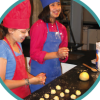
Cookie Surface Area
Source Institutions
This is an activity (on page 2 of the PDF under Surface Area Activity) about surface area to volume ratio.
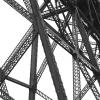
Breaking Beams
Learners investigate stress and strain by designing, building, and testing beams made from polymer clay.

Exploring Bouncing Balls
Source Institutions
Learners explore the physical properties of a variety of balls and how they bounce.
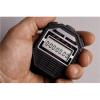
Built in Stopwatch
Source Institutions
In this activity (3rd on the page), learners investigate circadian rhythms by examining how well people do with estimating time.
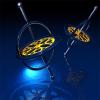
Super Spinners
Learners build at least two different spinners (tops) to investigate how mass distribution, size, and shape affect the length of time the spinner spins.

Disappearing Colors
Source Institutions
In this challenge, learners figure out how to make a juice stain disappear.
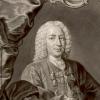
Fun with Bernoulli
Learners conduct four simple experiments to demonstrate the effects of air pressure.
Up, Up and Away with Bottles
Source Institutions
In this activity, learners make water rockets to explore Newton's Third Law of Motion. Learners make the rockets out of plastic bottles and use a bicycle pump to pump them with air.
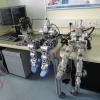
Exploring How Robots Move
Source Institutions
In this activity, learners explore how pneumatics and hydraulics could be used to produce movement in a robotic arm.
Buoyancy Bulls-Eye
Source Institutions
In this hands-on activity, learners will construct a scuba diver that can float in order to explore how sea creatures stay neutrally buoyant in the ocean and to see what kinds of forces might be influ
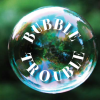
Bubble Trouble
Source Institutions
In this activity on page 15 of the PDF, learners measure the amount of bubbles that they make using a detergent.
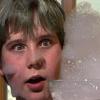
Foam Tower
Source Institutions
In this activity (page 1 of the PDF under SciGirls Activity: Water Slides), learners will whip up some suds with a cup of water and a tablespoon of dish soap until the bubbles are stiff enough to star

How Big Were the Dinosaurs?
Source Institutions
In this activity (located on page 4 of PDF), learners gain insight into the actual size of dinosaurs and practice making estimations and measurements.
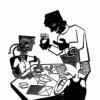
Greeting Card Boxes
Source Institutions
In this activity, learners make cool boxes out of old (or new) greeting cards or postcards.

Density Rainbow
Source Institutions
In this activity, learners mix several sugar solutions to investigate the property of density. Each sugar solution has a different density and color of the rainbow.
